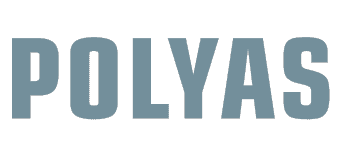Regulatory College Health Professions Act
In Canada, the Health Professions Act regulates medical professions. Each province has a different act, and it provides a framework that regulates medical professions in general. Regulatory colleges must ensure that they are adhering to the laws articulated in the Act. The Act is a piece of umbrella legislation that provides a general framework, while the government simultaneously introduces regulations particular to a certain medical profession, such as the Chiropractors Act.
Purpose of the Act
In Canada, about 20% of professions are regulated. This means that those wishing to work in the field must receive a license from a governing body. The purpose is to protect the public by ensuring that certain professional and ethical standards are met. So, unlike a professional association, regulatory colleges operate in the public interest, rather than the interest of those in the profession.
For this reason, many of the professions that are regulated by a college are in the field of medicine. After all, people want to ensure that the surgeon operating on them is qualified to do their job. The government of each province implements the Health Professions Act in order to provide a common regulatory framework. While the college is accountable to the government, they are still self-regulating. However, the government can step in should they feel that the college is not doing an adequate job protecting the public.
Overview
While there is a separate Act for each province, they each have similar structures. They tend to include legislation on the following:
- The role of the minister
- Each province will have a minister that is responsible for ensuring that the health professions are being properly regulated. The Alberta Health Professions Act, for example, states that the minister would be the Minister of Long-Term Health and Care
- The Act specifies what duties the Minister has, and how they can exercise said powers
- Duties of the College
- Covers the duties, roles, and aims of the college
- Covers how a new college may be created
- Advisory Panel
- The Minister may appoint an advisory panel which he or she can directly refer to. The panel can advise the minister and no one else
- The panel should advise the minister on issues such as
- Which professions should be regulated
- Amendments to the Health Professions Act
- The duties and objectives of each college
- The Council (referred to as the Board in British Columbia)
- The duties and purpose of the council
- The composition of the council, including the number of elected and unelected members, as well as the role of the President and Vice-President
- Information on how the first council or board of a college will be appointed
- Disciplinary Action and Inspections
- The ethical standards colleges are expected to maintain
- Under what circumstances the minister may ask for an inspection or take disciplinary action
- Bylaws
- Which rules the college may set up for itself and are not specifically mandated by the Act
- For example, the manner and dates of college elections are to be decided by the college’s bylaws and not dictated by the government
- Which rules the college may set up for itself and are not specifically mandated by the Act
There are numerous other issues covered in the Acts. Some of these are specific to certain professions or regions, with the British Columbia Health Professions Act having an entire section devoted to pharmacists. However, the above are the main points that are found in each act regardless of province.
Elections
Despite the fact that every college must regularly organize elections, there is actually very little mention of it in any of the Health Professions Act. This is largely because colleges are left with freedom regarding how they conduct their elections. While every council must have a certain number of elected officials (thus necessitating elections throughout the year), the manner in which they are elected is up to the college.
For example, section 19(1) of the British Columbia Health Professions Act states that college bylaws may “establish the time, manner and procedure for the election of registrants to the board”. This means there are no restrictions regarding online voting. While a college can organize an election via post or in-person if they desire, online voting will is by far the most convenient option. Not only will it take less time to set up and result in a higher voter turnout, the costs will actually be lower as well.




